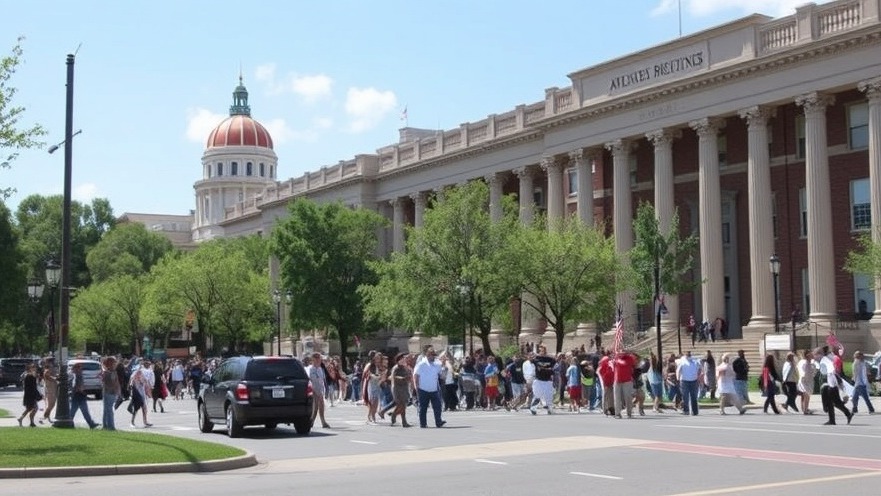
The Envisioned Future of Cooper Chapel Ground
The construction of a new American Disabilities Act (ADA)-compliant office and visitor center on the grounds of the Mildred B. Cooper Memorial Chapel in Bella Vista represents more than just the development of a new building; it signifies a commitment to inclusivity and accessibility for the community. This project, undertaken in response to the growing need for accessible public spaces, aims to enhance the visitor experience while ensuring that the chapel's facilities meet the needs of all guests.
Importance of ADA Compliance in Community Spaces
The new visitor center, which will feature wheelchair-accessible restrooms among other facilities, is an essential addition to the chapel grounds. By making these improvements, builders embrace the spirit of inclusivity, allowing everyone to enjoy the beauty and tranquility of the chapel regardless of physical limitations. The move toward ADA-compliance not only aligns with legal requirements but also demonstrates a broader societal commitment to equality and access.
A Historical Gem Undergoing Transformation
Architected by E. Fay Jones, the Mildred B. Cooper Memorial Chapel, constructed in 1988, has been a cherished landmark in Bella Vista. Known for its stunning Gothic arches and scenic surroundings, the chapel has already drawn visitors for its architectural beauty and serene atmosphere. With the new project, officials aim to enhance the experience, allowing even more community members—those with disabilities—to connect with this historical site. This transformation fosters community spirit by opening the grounds to everyone.
The Planning Process: Navigating Challenges and Opportunities
The journey towards this development hasn't been without its challenges. While the Bella Vista Planning Commission approved the project with overwhelming support, discussions surrounding accompanying requirements, such as the sidewalk installation along Memorial Drive, highlighted the complexities involved. As outlined by project manager Chuck Bell, the varied terrain posed significant costs, leading to a waiver request for the sidewalk. This dialogue illuminates how progress necessitates negotiation and compromise in community developments.
Enhanced Community Engagement: A Welcome Center for Bella Vista
The visitor center, estimated to be 1,085 square feet, serves as an operations facility and a hub of community interaction, facilitating easier access to information about chapel events and visitor services. This effort is a response to a growing demand for enhanced public amenities and represents an investment in Bella Vista's future. Commissioner Doug Farner emphasized that creating a diverse facility promotes wellbeing for the public—encouraging community engagement and allowing the chapel to thrive as a cultural centerpiece.
The Broader Impact: Supporting the Local Economy
This development not only aims to improve accessibility but also fosters economic growth within Bella Vista. As a nonprofit organization open to the public, the chapel's visitor center can draw more visitors, thereby benefiting local businesses, tourism, and fostering communal ties. According to trends from other community developments, ADA-compliant amenities can also increase site attractiveness, ultimately enhancing local economic opportunities and community cohesion.
Conclusion: A Step Towards Inclusivity in Bella Vista
The construction of the new office and visitor center at the Mildred B. Cooper Memorial Chapel is a notable initiative taking shape in Bella Vista. As the project progresses, it stands as a beacon of hope for inclusivity, a step towards ensuring that all community members can share in the cultural and historical richness that this chapel offers. Residents can look forward to a space that will not only invite more visitors but also reflect the values that shape Bella Vista’s vibrant community. It is essential for residents of Northwest Arkansas to support such initiatives that enhance local infrastructure and community spirit.



Write A Comment